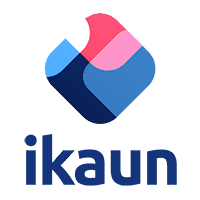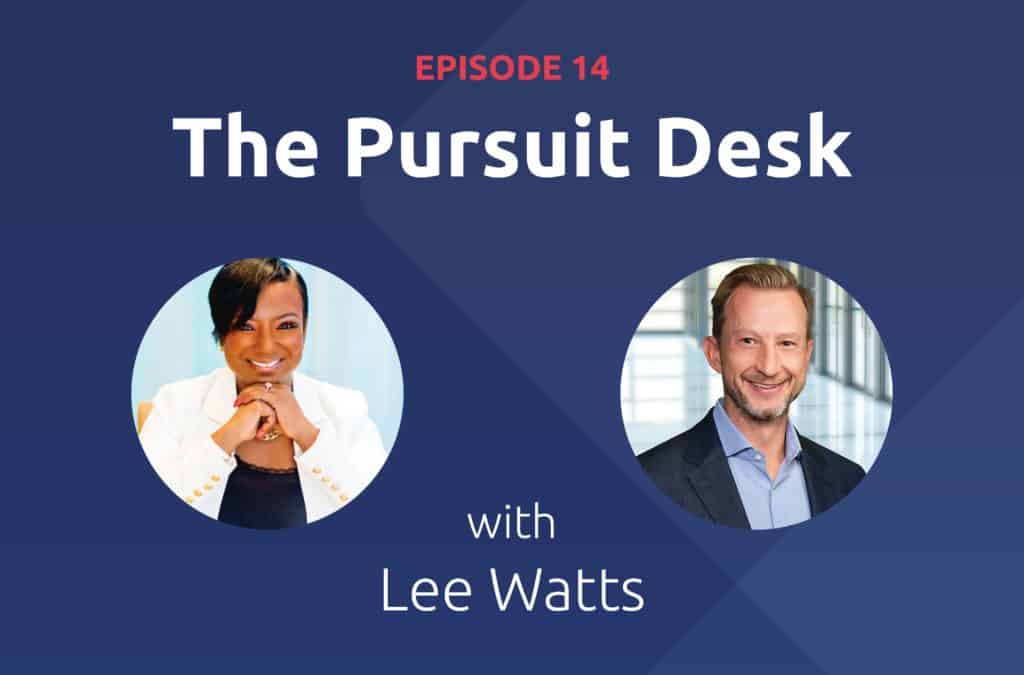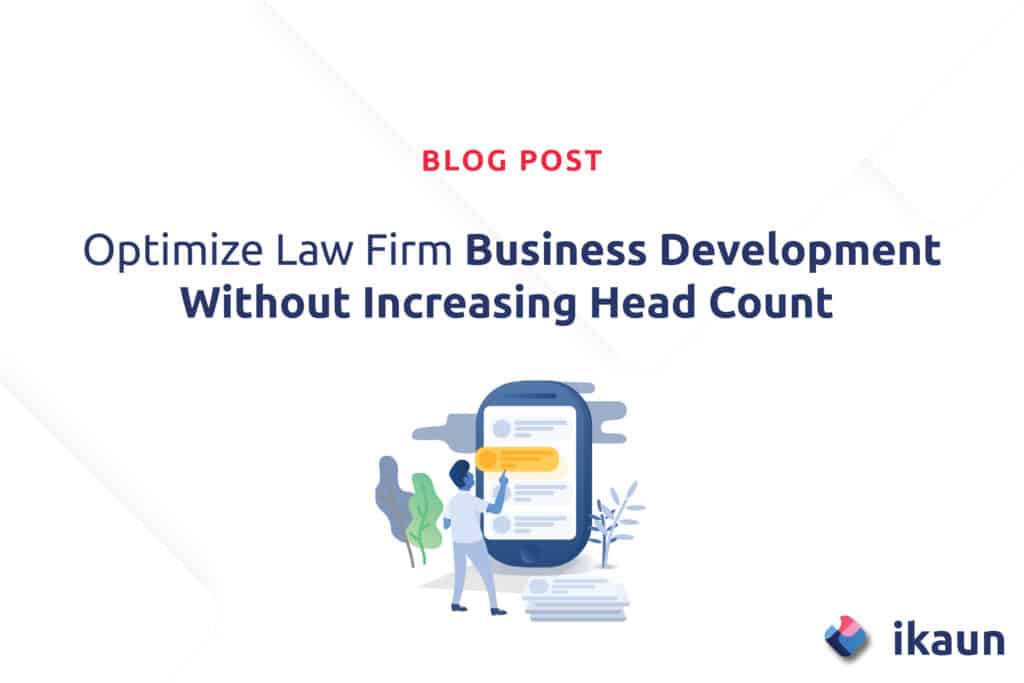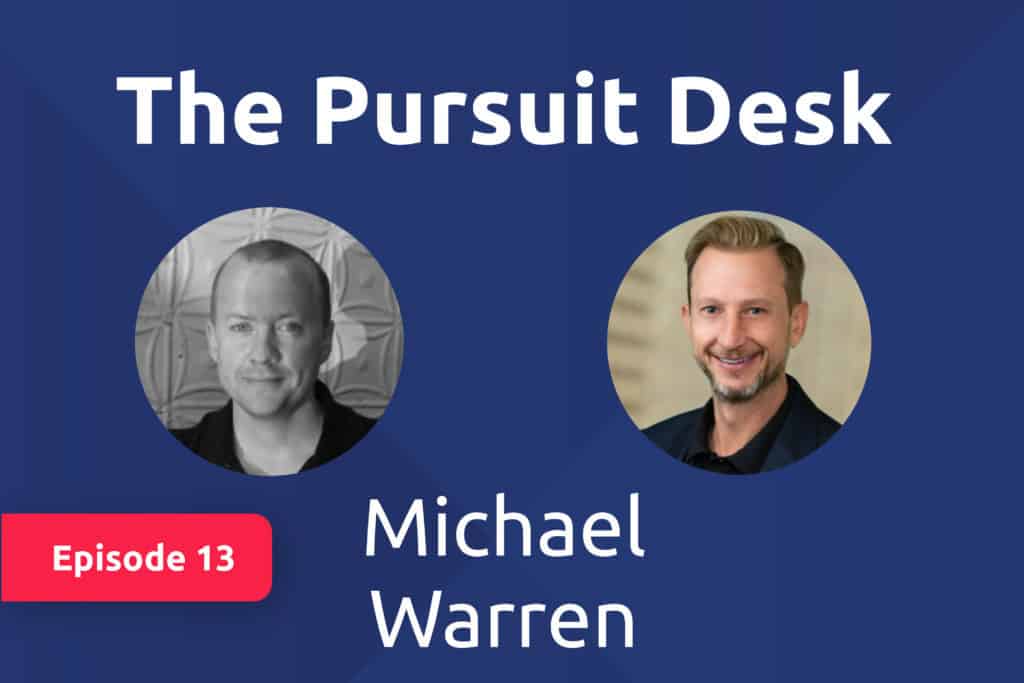In this week’s episode of The Pursuit Desk features Joshua Fireman, founder and president of Fireman & Company, joins Jason Noble to discuss the activities that result in optimizing your bd and marketing workflows.
Joshua has over 20 years of experience in knowledge management in the legal space. Joshua has a background in legal with a law degree and practiced law with two of north Americas largest law firms before founding Fireman and Company
Connect with Fireman & Company Here
2:05 The process of experience management and the transition it’s made
The key thing most people need to understand is that experience management requires some degree of human input. You are not able to get contextually rich data if you are just extracting data.
When Joshua started in knowledge management, the first thing he worked on was a constant system. He captured the data that was interesting on a matter by matter basis, and he always needed lawyers input to get this information. He struggled to get attorneys to engage and provide the right information.
But there were limitations to that previous model. There is only so much you can derive and learn with this approach. Law firms were not business that were set up to share and integrate information. The information they need as to come from people.
Now knowledge management uses search and although it uses it well, it doesn’t work at the same level as direct interactions with the lawyers. Marketing and business development teams have been growing and continue to get bigger budgets, but yet they are not growing their own sets of data.
And Joshua suggests that if you think of knowledge management, you are thinking of it in the way of “how do we do this with out reinventing the wheel”. And then experience management showed up, and it provided an opportunity on how to rethink the process and the business outcomes. It could now be cross functional approach as opposed to multi siloed.
12:33 The role data plays in experience management
There is not a single experience management project that does not have to start with data. Joshua says he likes to start with data hygiene exercise, this is the stage where you determine how and where you are going to use the data.
Joshua believes that the dependability of your data is reliant on how do you gather the data, how do you ensure its correct and how do you build it into the matter lifecycle.
Some of these use cases take a lot of work to build around the processes. And when you think about data, the advice Joshua gives is that first, we need to start with a list of all use cases they want to focus on and the finite set of data types that enable those use cases. Then they begin to prioritize those based on what the firm has and what is executable. Once it is clearly defined he can show the value of data and establish the basis of your data framework.
Joshua warns that usually, the first conversation about your data projects is always overwhelming, but once you break it down thoroughly you can make it relatively straight forward.
Its also important to note that experience management is an ongoing journey, its not a one-time project.
17:15 systems that firms can put in place around diversity.
Joshua sees one defining moment for diversity at firms, and it is the moment an attorney walks into the firm, the first piece of work they are assigned sets the foundation for the rest of their time there.
And in regards to diversity, Joshua thinks it is the most important long term survival strategy for law firms in the industry, and that it should be a key driver for firms to work towards over the span of 1 to 2 years. Working toward a better system is more important than appointing committees and writing press releases.
19:16 how diversity at a firms intersects with attorney
Joshua doesn’t claim to be a diversity expert, but thinks it is an important issue for him to discuss and share his thoughts on. The path of an associate at a law firm is set very early on in their career, and it is based on the types of work that they get experience in.
For example, if two associates start at the same firm and the same time and they both fulfill the same amount of hours, they are theoretically on a similar path. But it is common that one of those associates may have worked on 2 high profile matters, versus the other may have worked on 15 smaller matters. This directly impacts the rest of their career path. Ehen the next big deal comes to the firm, one of them will have more experience working on higher profile matters and will be more likely to get assigned the matter.
Joshua understands that there is always a level of subjectivity and inherent biases, especially at law firms. And what that often contributes to is women, minority groups, members of the LGBTQ+ community often don’t receive the same work. And that sets these groups of individuals on a different path.
And a lot of firms do want to look at their diversity, but they do diversity analysis after the fact. Asking the question “how diverse are we?” is the wrong question. You don’t need to run a report to know that law firms typically aren’t diverse, more specifically in leadership. And by the time someone is up for partner, its too late to make the changes needed. In this way a lot of firms are losing quality candidates along the way, simply because of the path.
It is important to have an understanding what is the work, how the work needs to get performed and what type of skills need to be applied to get it done. This can help you make the work available to candidates at the firm and give opportunity to the right people. But this requires a series of dependable data points and actions.
29:48 The big ask project
Joshua states that in every knowledge management project, there is always the “big ask”. And firms will focus so much on this big ask project, that they tend to lose track of the other benefits from the project, and the steps needed to get to that point.
31:35 What are you excited about over the next couple years?
Joshua thinks that we are going to see a slow dissolution of the political and administrative barriers in firms. Firms will pivot strategically to outcomes that require real collaboration across sections.
And more specifically when COVID forced people to work remotely, the legal industry was lucky that they were able to do that. But they quickly learned that it wasn’t just about the systems, every process that was reliant on talking to someone in the same room was now gone. And these are likely to be gone permanently. And this is perhaps the most exciting shift in legal he has seen in a while.
Key Features
Ikaun was built to help organizations easily create, discover, and use knowledge to enhance employee productivity and increase business outcomes.

Experience Finder
Leverage your organization's collective experience for better decision making; easily search for internal experts by skill sets, industry expertise, and more.

AI-Enhanced Search
Ikaun’s Intelligent-Knowledge-Assistant searches through your ikaun environment and other connected systems to help answer FAQs, find people, find assets, or support complex research scenarios.

Profiles
Create easy-to-read profiles that include biography, skills / expertise, employment history, certifications, affiliations and other key information about your employees.

Proposal Generator
Leverage experience already unified in your ikaun platform to create beautiful on-brand proposals and pitches in minutes.

Knowledge Campaigns
Deploy knowledge campaigns to inform employees about active pursuits, new clients, or firm news.

Integrations
Connect your document management systems, CRM, and other popular applications with ease and confidence.




